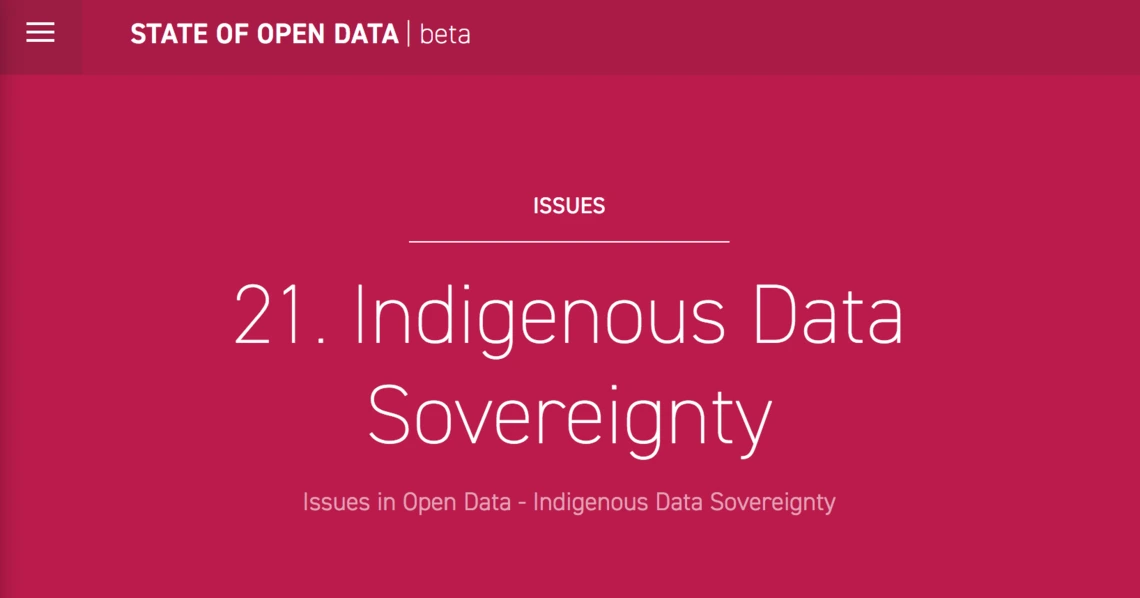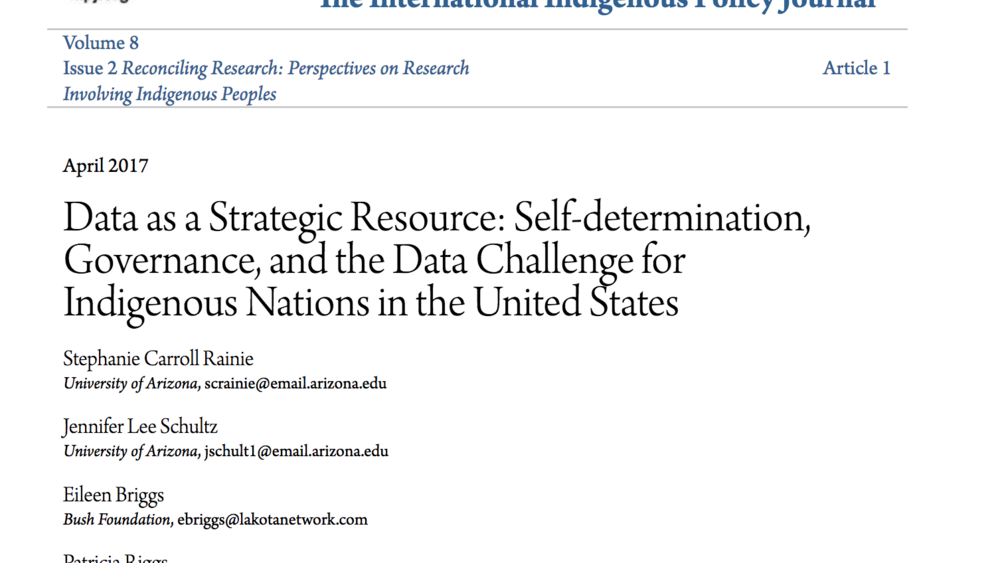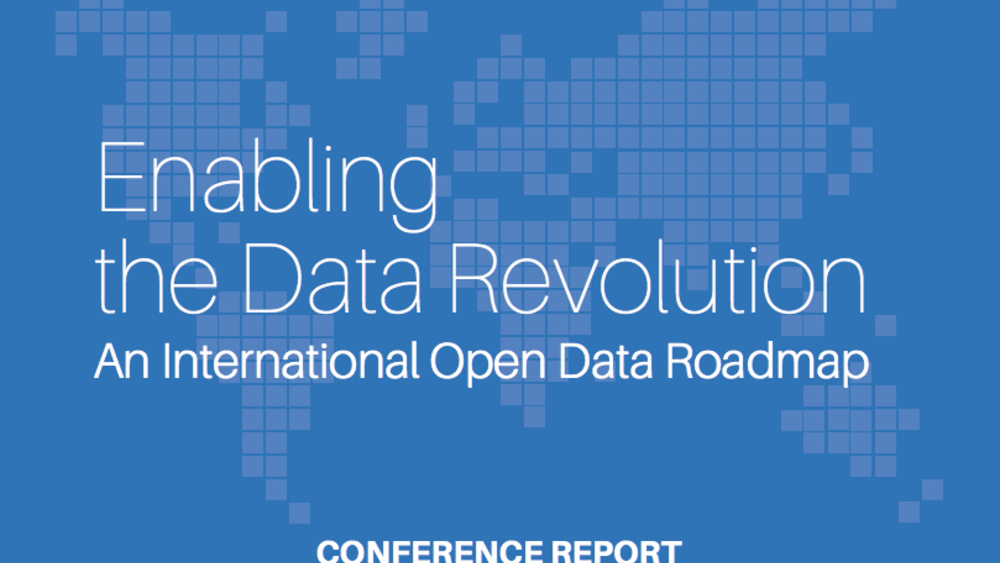Open data in the context of Indigenous peoples is a double-edged sword. Open data is a site of tension for Indigenous peoples. Open data provides opportunities for sustainable development according to Indigenous aspirations, yet also sits at the nexus of current and historic data challenges as a result of colonisation, bias, and a lack of knowledge of Indigenous rights. Indigenous data sovereignty (IDS) provides a framework for maximising the benefit of open data for Indigenous peoples and other users of Indigenous data and for affecting the stewardship of all data. Open data communities often assume many binaries, including a single government actor (nation-states), that data is open or not, and that open data is useful data (devoid of biases and relevance issues). In the context of Indigenous peoples, there are clear challenges for the mainstream open data movement around these binaries, as well as paths forward to assure the protection of Indigenous rights and data for development.
Additional Information
Rainie, S., Kukutai, T., Walter, M., Figueroa-Rodriguez, O., Walker, J., & Axelsson, P. (2019) Issues in Open Data - Indigenous Data Sovereignty. In T. Davies, S. Walker, M. Rubinstein, & F. Perini (Eds.), The State of Open Data: Histories and Horizons. Cape Town and Ottawa: African Minds and International Development Research Centre.
Print version DOI: 10.5281/zenodo.2677801



